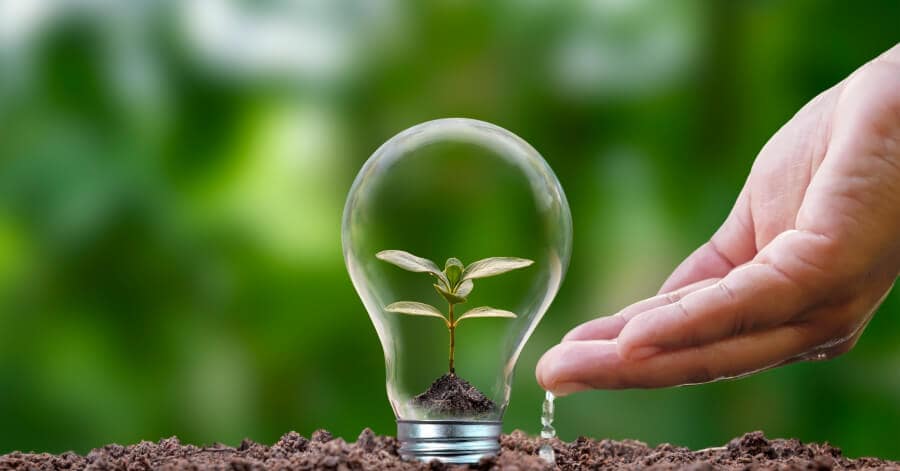Hyundai Motorstudio Senayan Park
Hyundai Motorstudio Senayan Park
Newsroom
The official news from Hyundai Motorstudio Senayan Park and a collection of innovative articles on mobility and sustainability here.
-
4 New Green Energy Exhibits in the G20 Presidency
- Hyundai Motorstudio Senayan Park Senayan Park 2022.09.21
-
The holding of the G20 Presidency on November 15-16, 2022 in Bali, will be the first step in implementing sustainable green technology in Indonesia. In this prestigious event, Indonesia wants to be part of the world to reduce carbon emissions that cause global warming.
Currently, Indonesia has developed four environmentally friendly energies with the support of the National Research and Innovation Agency (BRIN).
4 Eco-Friendly Energy at the G20 Presidency
The four environmentally friendly energies introduced at the G20 presidency are Hydrogen, Fuel Cell technology , Geothermal Power Plants (PLTP), and Nuclear Power Plants (PLTN). For more details, read on for the following info!
1. Hydrogen
In order to reduce the impact of climate change, Indonesia contributes with hydrogen energy. Hydrogen technology will be utilized in the transportation and industrial sectors.
However, hydrogen is not used with fuel cell technology. Instead, use the technology of internal combustion of motor vehicles. The Indonesian government encourages the use of environmentally friendly energy, such as electric stoves, battery-powered electric cars, and alternative fuel energy using hydrogen.
Therefore, the Indonesian government is working with South Korea to build Electric Vehicle Charging at several pilot points.
This is in line with the Net Zero Emissions strategy by 2060, which supports the Paris Agreement to reduce carbon emissions by 29% by 2030.
2. Fuel Cell Technology
The second environmentally friendly energy source that Indonesia also introduced at the G20 presidency is fuel cell technology. Renewable energy such as fuel cells supports a fuel system that is cleaner and does not release carbon emissions into the air.
Fuel cell technology will convert chemical energy into electrical energy to drive motorized vehicles. It can be refilled, making it cleaner and more environmentally friendly.
The development of fuel cell technology in Indonesia continues to be developed by the Indonesia Association Fuel Cell and Hydrogren Energy (INAFHE). It is hoped that INAFHE will become a forum for developing fuel cell science and technology for the sake of the wider community.
3. Geothermal Power Plant (PLTP)
According to the Ministry of Energy and Mineral Resources, Geothermal Power Plants (PLTP) in Indonesia have the potential to produce around 23.9 Giga Watts. This means that Indonesia can contribute 40% of the global geothermal potential.
However, unfortunately, Indonesia is only able to provide around 9.5% or around 2,276 Mega Watts. It is still very far from the expected target, even most of the components of PLTP supporting equipment must be imported from other countries.
In fact, PLTP is an environmentally friendly technology that releases very low carbon emissions. In fact, PLTP does not need to produce fuel sources because it is already available on site.
Generally, geothermal potential in Indonesia is in the eastern region with a potential of 50 Megawatts or around 35%.
4. Nuclear Power Plant (NPP)
The fourth renewable energy or environmentally friendly energy introduced by Indonesia in the G20 presidency is the Nuclear Power Plant. According to the 2007 Energy Law no. 30, nuclear energy is one of the renewable energy groups.
Since the 1970s, nuclear energy has been introduced for the first time. Furthermore, the planned development around the Serpong area.
Following up on the development of nuclear energy , Indonesia is partnering with the Nuclear Energy Program Implementation Organization (NEPIO) with PLN. Both organizations are responsible for preparing and developing nuclear technology in Indonesia.
Fuel Cell And Hydrogen Technology Needs In-depth Research
Of the four environmentally friendly energies exhibited at the G20 Presidency, of course, Indonesia still needs further research and development before being implemented.
The reason is that renewable energy technologies, such as hydrogen and fuel cells, require large costs and the process is also complicated. In fact, the process of separating water molecules into hydrogen and oxygen requires a large amount of energy, but it is not commensurate with the amount of energy produced.
Several alternative fuels in the transportation sector, the government is also discussing the use of environmentally friendly energy such as bioethanol. Bioethanol is one of the fuels from vegetable sources that can be an alternative to gasoline.
Electric Car Factory Construction in Indonesia
Supporting efforts to transition to clean energy or environmentally friendly energy, the government invites electric car manufacturers to build factories in Indonesia. Battery-powered electric cars emit only a small amount of carbon emissions. This is in line with the target of zero carbon emissions by 2060 based on Indonesia's National Contribution.
If implemented, the transition to environmentally friendly energy will greatly save the country's foreign exchange up to Rp 2 trillion by 2060. Therefore, all parties must work together to achieve the target as expected.
Meanwhile, by 2022, PLN is targeting 580 SPKLU ( General Electric Vehicle Charging Stations ) to provide recharging of electric motor batteries in various regions. Meanwhile, the SPBKLU (Electric Vehicle Battery Exchange Station) target in 2022 is 4,900 points.
The electric vehicle ecosystem is very strategic as an effort to reduce carbon emissions in Indonesia. In addition to driving the economy, electric vehicles are also able to save the state budget, and save a cleaner earth for future generations.
Hyundai Motors as one of the electric vehicle manufacturers in Indonesia strongly supports mobility that is environmentally friendly and has zero carbon emissions. Users of electric vehicles can do their daily activities, without polluting the environment with renewable energy.
If we realize the importance of reducing the impact of climate change from now on, then it is time to switch to renewable energy such as electric vehicles that are more environmentally friendly. Come on, let's keep the earth sustainable now and in the future to be passed onto future generations.




